detail profile jean paul moulinot
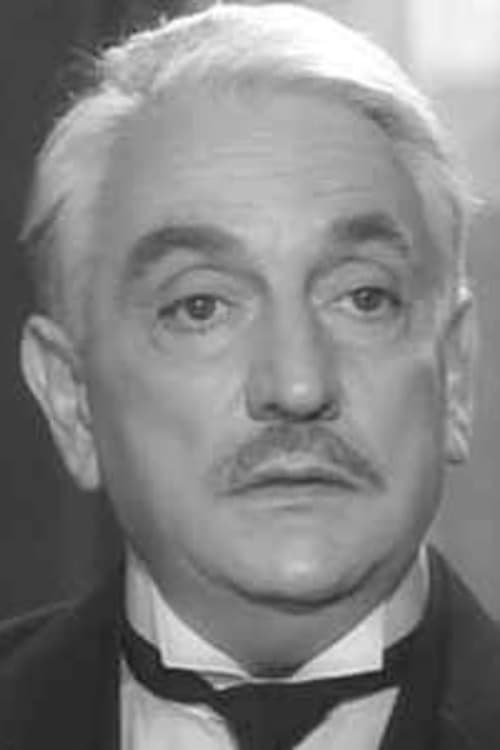
Jean-Paul Moulinot
J.P. Moulinot
atau dikenal sebagai
Riwayat Hidup
Jean-Paul Moulinot (30 June 1912 – 3 December 1989) was a French actor, sociétaire of the Comédie-Française.
Elisabeth (Yvette) Hardy (1917-2000), a comedian at the TNP, was his wife.
Close to Jean Vilar, he took part to the first Festival d'Avignon in 1947 and from 1951, the year the TNP reopened, he belonged to the troupe where he remained during all the years Jean Vilar was the director, then joined the Comédie-Française until his death.
Source: Article "Jean-Paul Moulinot" from Wikipedia in English, licensed under CC-BY-SA 3.
0.
Info Pribadi
Peran Yang Di Mainkan Jean-Paul Moulinot
 A middleaged businessman faces bankruptcy after...
A middleaged businessman faces bankruptcy after...Mado 1976
A middle-aged businessman faces bankruptcy after his partner's suicide and a rival's unscrupulous offer to buy his company. Determined to avoid the trap, he finds an unexpected solution through a prostitute.
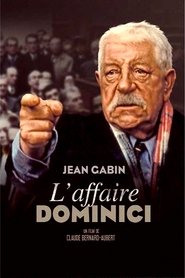 In August 1952 a family of British...
In August 1952 a family of British...The Dominici Affair 1973
In August 1952, a family of British tourists is found by the roadside in Haute Provence, brutally murdered. In the ensuing, very public, investigation a local landowner, 75 year old Gaston Dominici, is arrested for the murders, having been denounced by his sons. Under police interrogation, Dominici confesses to have killed the family and it looks certain that he will be charged, tried and sentenced to death. But then the case begins to collapse. The old man retracts his confession and the lack of evidence against him becomes apparent…
 A love story between a teacher...
A love story between a teacher...To Die of Love 1971
A love story between a teacher, Daniele, 32 years and one of his students Gerard, 17 during the heated atmosphere of May 68. Daniele is a fiery young woman, very involved politically. Gerard's parents accuse Danièle of statutory rape and complain. Danièle is trapped and the drama begins...
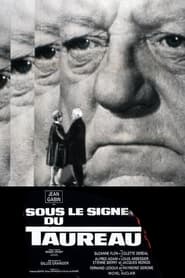 In this film Albert is an...
In this film Albert is an...Under the Sign of the Bull 1969
In this film, Albert is an eccentric inventor of missiles who comes under fire from his investors when his first prototype explodes. Even his sympathetic mistress has her doubts, as Albert lashes out in a verbal tirade condemning those of little faith in his genius.
 After being freed from a Vietnamese...
After being freed from a Vietnamese...Lost Command 1966
After being freed from a Vietnamese war prison, French Lt. Col. Pierre Raspeguy is sent to help quell resistance forces in Algeria. With the help of the Capt. Esclavier, who has grown weary of war, and Capt. Boisfeuras, who lives for it, Raspeguy attempts to convert a rugged band of soldiers into a formidable fighting unit, with the promise of marrying a beautiful countess if he's made a general.
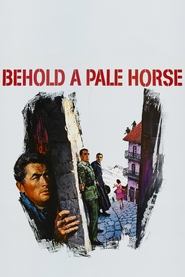 Manuel Artiguez a famous bandit during...
Manuel Artiguez a famous bandit during...Behold a Pale Horse 1964
Manuel Artiguez, a famous bandit during the Spanish civil war, has lived in French exile for 20 years. When his mother is dying he considers visiting her secretly in his Spanish home town. But his biggest enemy, the Spanish police officer Vinolas, prepared a trap at the hospital as a chance to finally catch Artiguez.
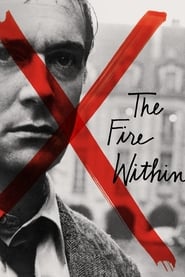 Although his alcoholism has been treated...
Although his alcoholism has been treated...The Fire Within 1963
Although his alcoholism has been treated, Alain still feels he is deeply unwell and does not feel he can leave the detoxification clinic once and for all. His wife, living in New York, continues to pay for his treatment, but no longer contacts him directly. He intends to commit suicide, but first takes a ride to Paris to catch up with old friends.
 The film consists of seven roughly 15...
The film consists of seven roughly 15...The Devil and the Ten Commandments 1962
The film consists of seven roughly 15 minute episodes, each showing what will happen if one or more of the Ten Commandments will be broken: Jérome Chambard is warned that he will lose his job if he continues to swear; Françoise Beaufort enamored of a stripper calls on her only to find her married to a janitor who doesn't know what kind of dancing his wife performs; Denis, a Jesuit novice, leaves the order to avenge his sister's suicide, which was provoked by Garigny, who seduced her into prostitution and drug addiction; Philip buys a necklace for Micheline though he is bored with her; a young man find out that his real mother is not Madeleine, but actress Clarisse Ardant; Didier Marin, cashier of a bank, was fired by his boss; the Devil appears as a serpent for Jérome Chambard and the bishop are eating.
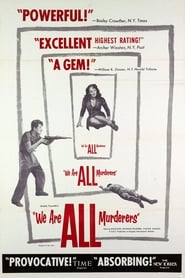 Originally titled Nous Sommes Tout des...
Originally titled Nous Sommes Tout des...We Are All Murderers 1952
Originally titled Nous Sommes Tout des Assassins, We Are All Murderers was directed by Andre Cayette, a former lawyer who detested France's execution system. Charles Spaak's screenplay makes no attempt to launder the four principal characters (Marcel Mouloudji, Raymond Pellegrin, Antoinine Balpetre, Julien Verdeir): never mind the motivations, these are all hardened murderers. Still, the film condemns the sadistic ritual through which these four men are brought to the guillotine. In France, the policy is to never tell the condemned man when the execution will occur--and then to show up without warning and drag the victim kicking and screaming to his doom, without any opportunity to make peace with himself or his Maker. By the end of this harrowing film, the audience feels as dehumanized as the four "protagonists." We Are All Murderers was roundly roasted by the French law enforcement establishment, but it won a special jury prize at the 1952 Cannes Film Festival.
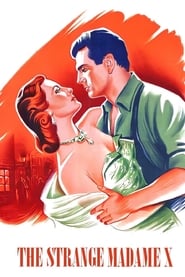 Irne is the unhappy wife of...
Irne is the unhappy wife of...The Strange Madame X 1951
Irène is the unhappy wife of a wealthy publisher, Jacques Voisin-Larive, who cares about her no more than a beautiful piece of furniture. Her meeting with Étienne, a young cabinetmaker with whom she falls in love, turns her dismal existence upside down. Not wanting to reveal her condition to her lover, she pretends to be a modest maid, employed by the Voisin-Larive. At the end of a weekend spent with her lover, Irène discovers that she is pregnant. The fragile balance of their existence is suddenly broken. Taking the initiative, she reveals her affair to Jacques and tells him about her desire to divorce. But her husband has no intention of giving her back her freedom...
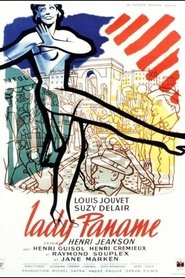 The evocation of Paris in the 1920...
The evocation of Paris in the 1920...Lady Paname 1950
The evocation of Paris in the 1920s mingles with the rapid rise of the irresistible Caprice, a talented singer, and her tumultuous love affair with Jeff the composer. A photographer nicknamed Bagnolet, a gentle anarchist, gently monitors the activities of Caprice, who has become Lady Paname and, in the absence of morality, makes love triumph.
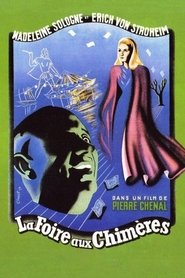 The Director of an international banknote...
The Director of an international banknote...Devil and the Angel 1946
The Director of an international banknote printing institute, mutilated by the face of the Great War, Frank Davres, falls in love with a young woman, Jeanne, admirably beautiful, but blind. He marries her. For her, he ruins himself and comes to issue counterfeit banknotes. The young woman does everything to make people forget her infirmity. One day, following an operation, she recovers her sight and notices the physical and moral ugliness of her husband. She hides her cure until the day when Frank, taken by the police, kills one of his accomplices and commits suicide. Jeanne leaves to join a friend with whom she was performing in a circus.
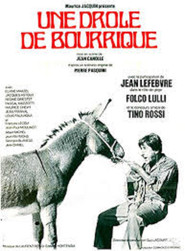 Maddalena finds that her donkey has...
Maddalena finds that her donkey has...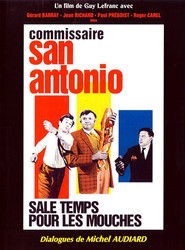 Renowned atomic scientists are kidnapped on...
Renowned atomic scientists are kidnapped on...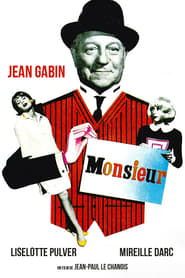
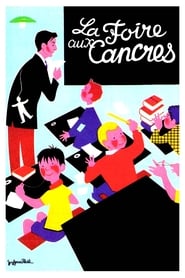 On prizegiving day a few dunces...
On prizegiving day a few dunces...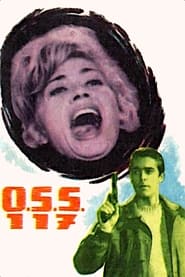 An American agent disappears after a...
An American agent disappears after a...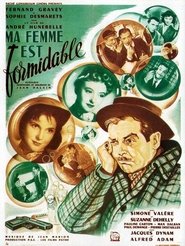 Raymond Corbier a sculptor has a...
Raymond Corbier a sculptor has a...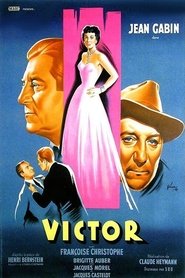 Secretly in love with Franoise the...
Secretly in love with Franoise the...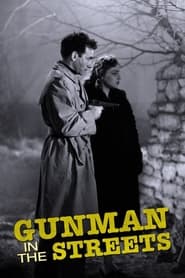 An American is on the run...
An American is on the run...